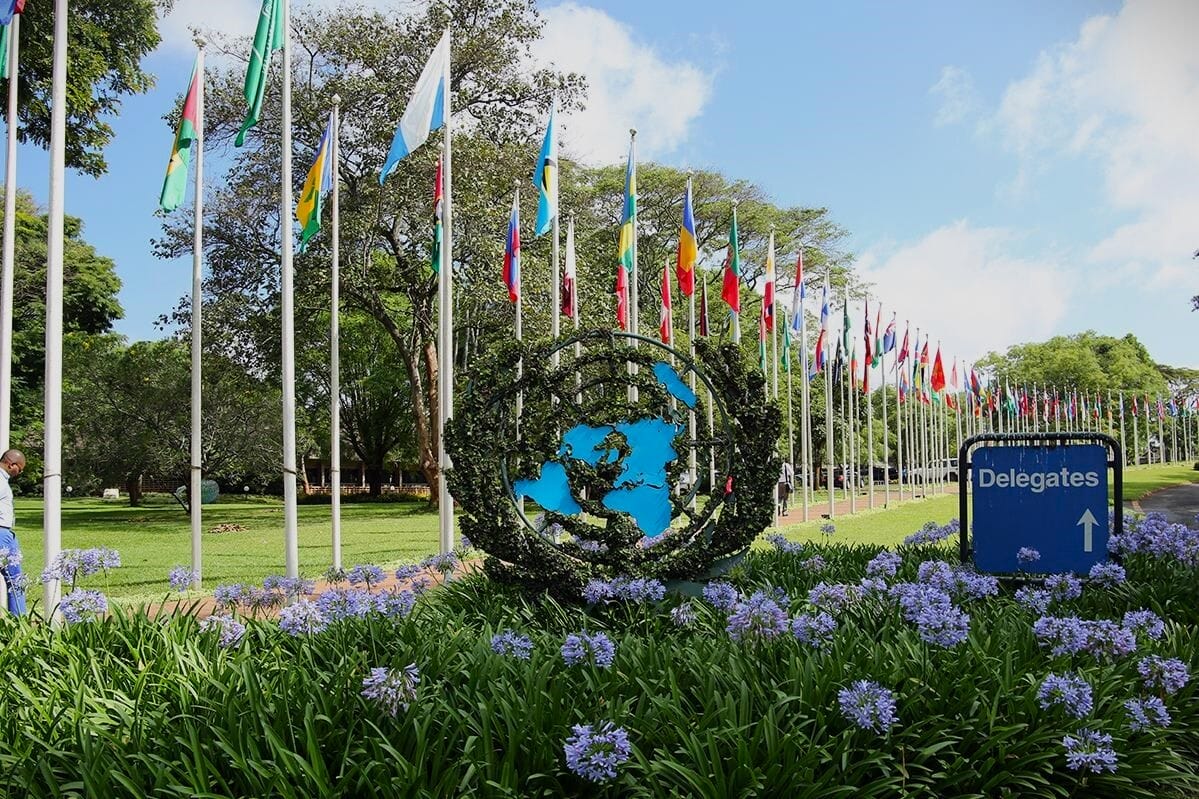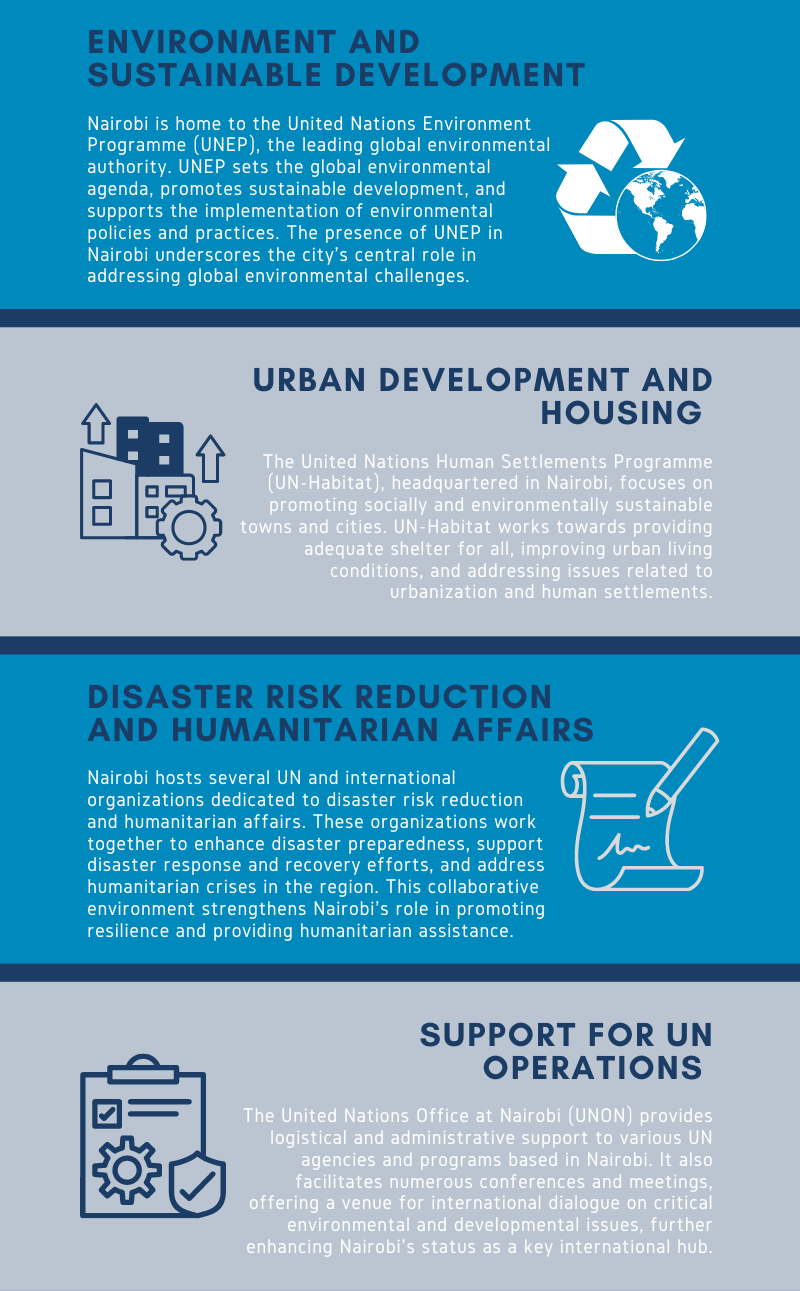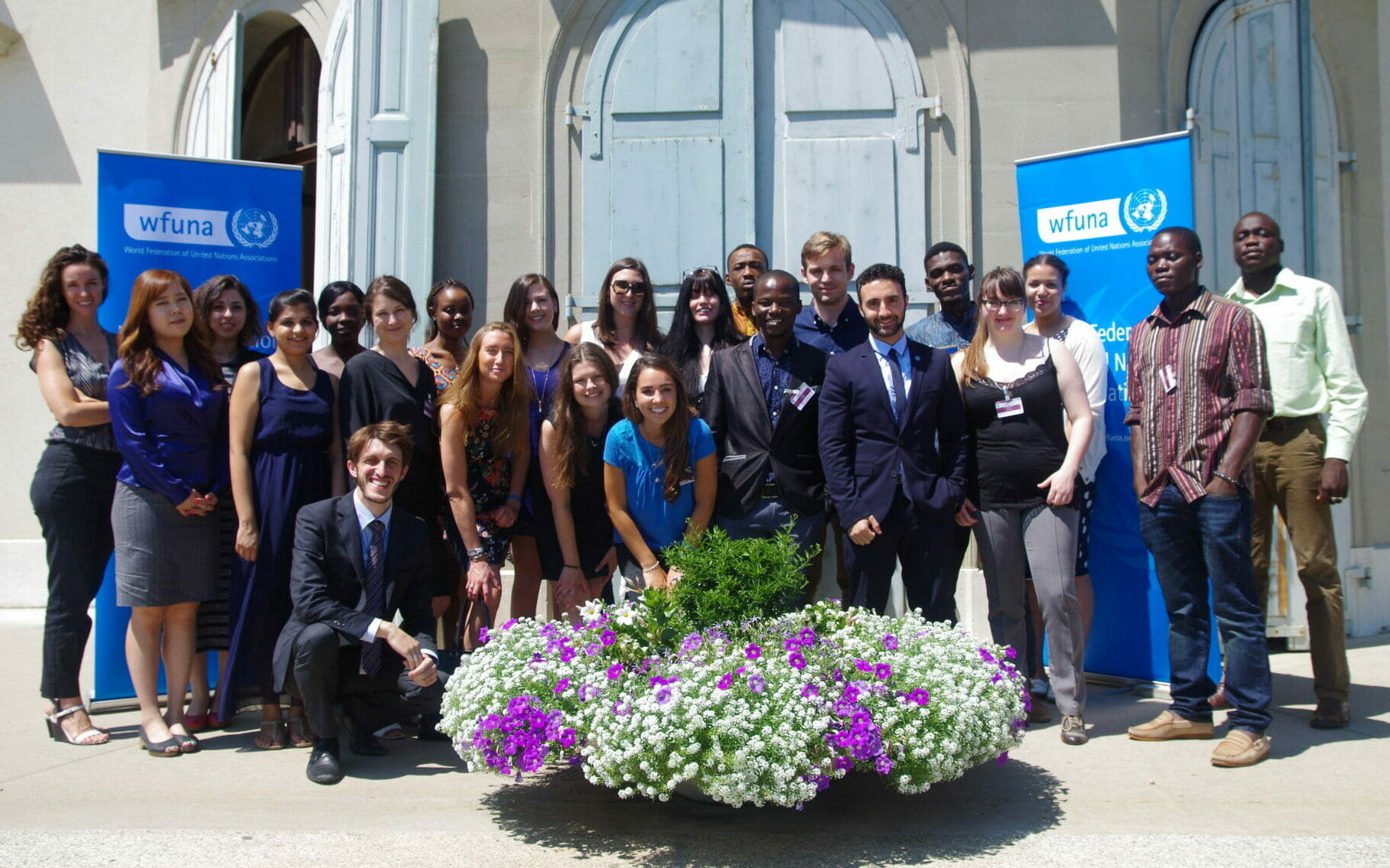If you are interested in providing this experience to your group of high school students, university students in undergraduate or graduate programs, or to your faculty and university management, please send us an email. Programs can only be arranged in partnership with an educational partner. WFUNA is not currently accepting individual applications for our Training Programs.

Nairobi, Kenya
Role in the UN
Nairobi, Kenya, serves as a vital hub for international environmental governance and sustainable development, housing the United Nations Office at Nairobi (UNON). Established in 1996, UNON is one of the four major UN offices globally, alongside New York, Geneva, and Vienna. As the African Headquarters of the UN, the Nairobi office plays a significant role in the organization’s efforts to address global environmental challenges and promote sustainable development, fostering international cooperation and facilitating various environmental programs and initiatives.
History
Nairobi’s significance in international environmental diplomacy began with the establishment of the United Nations Environment Programme (UNEP) in 1972. UNEP’s headquarters were set up in Nairobi, marking the city as a center for global environmental action. UNEP moved to its current location in Gigiri in 1975, and in 1978, it was joined by the United Nations Human Settlements Programme (UN-Habitat). This created a robust UN presence in Kenya, further solidifying Nairobi’s role in addressing global urban development and housing challenges. These institutions have made Nairobi a central venue for international negotiations and conferences on environmental and developmental issues.
The United Nations Office at Nairobi (UNON) supports a wide range of UN activities, primarily focusing on environmental and human settlements issues, and serves as a key venue for international negotiations and conferences. Its functions and responsibilities include:

Through these functions, Nairobi has cemented its position as a central location for international environmental and developmental efforts. Today, 23 UN agencies operate from Nairobi, addressing diverse challenges from climate change to urbanization.
Cultural Experiences
Nairobi is a city of vibrant cultural diversity and rich heritage, significantly influenced by the presence of international organizations. Key attractions include the Nairobi National Park, where wildlife roams against the backdrop of the city skyline, and the Karen Blixen Museum, which offers insights into the life of the famous author. Visitors can explore the Nairobi National Museum to learn about Kenya’s history and heritage or take a stroll through the bustling markets and modern shopping centers. The city is also renowned for its culinary delights, with a variety of local and international cuisines to enjoy, including traditional Kenyan dishes such as Nyama Choma and Ugali.


